It is common to have dust cover up the insides of a computer case. What’s important is knowing how often to clean your PC to keep up the optimal performance of your system and prevent frustrating issues like lags and slower speeds.
Key Takeaways
- Your PC can face overheating issues if you do not clean it often, which may reduce the components’ lifespan.
- Cleaning the PC occasionally can reward you with good performance and riddance from overheating.
- Air filters, cleaner surroundings, and distance from pets can help keep your PC clean for longer.
In my experience, it’s crucial to clean your PC every 3 to 6 months, although the frequency might vary depending on where you live. If you’re in an area with polluted air, you might notice dust accumulation within just a few days after giving your PC a thorough clean.
Even in cleaner environments with less dust, it’s still important to frequently open up your PC case and inspect the components.
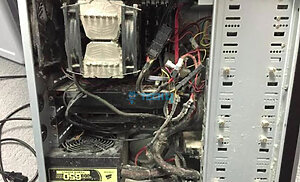
I mostly use compressed air cans to remove dust from the hard-to-reach areas of my PC and the components. The nozzle is narrow and conveniently blows off layers of dust. However, if you do not have an air can, then you can clean your PC without compressed air.[1]
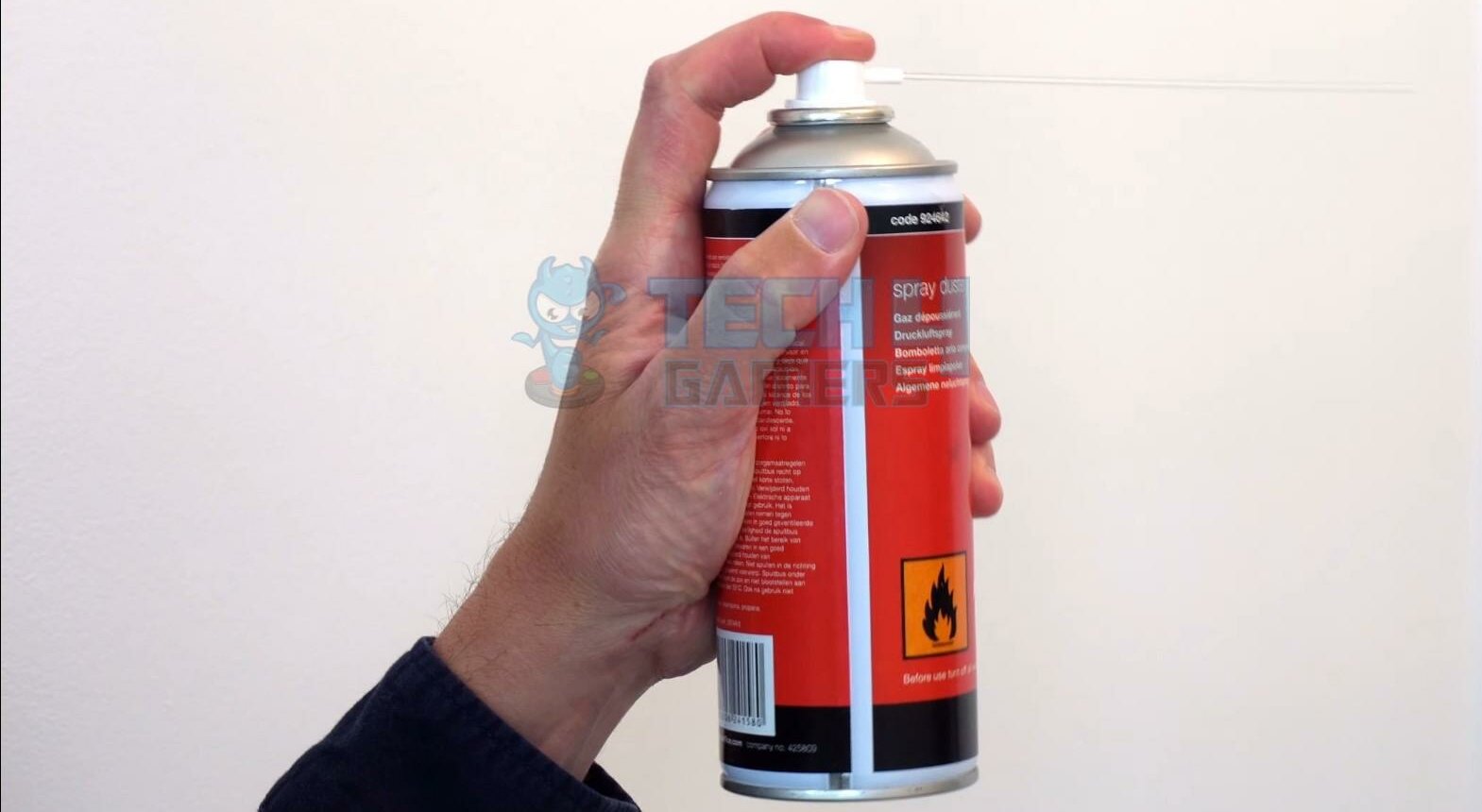
Importance Of Cleaning A PC Often
Not cleaning your PC causes dust and debris to build up, ultimately affecting its overall condition.[2] Not only does it harm your components physically, but it also can snatch their ability to perform the assigned tasks.
These are all the problems you may encounter for not cleaning the PC timely:
- Slower Performance: Resource-intensive tasks become sluggish, such as gaming, high-resolution movie streaming, or loading multiple tabs simultaneously.[3]
- Overheating: Dust accumulation in PC components hampers fan ventilation and disrupts heat dissipation, forcing components to work harder to maintain performance and temperature.[3]
- Polluted Surroundings: As your PC heats up, the fans work harder to bring in cool air, attracting surrounding dust earlier than usual.
- Reduced Lifespan: With problems like overheating and dust build-up, the original lifespan of the PC and its components may be reduced.[4]
Which Components Of The PC Should Be Cleaned Often?
Here is a list of essential components I clean every once in a while to prevent unwanted PC troubles. To make things easier for you, I will briefly explain the cleaning technique for each.
- Monitor: Use an air compressor can or alternatives to clear dust from the monitor’s input ports. After clearing the dust, I wipe the monitor with a damp cloth to eliminate any stubborn mess.
- Fans: Fans hold much dust as they are the ones that do all the air work in the first place. Therefore, you need to clean PC fans to allow smooth functioning. I use a cotton swab dipped in rubbing alcohol for tough dust. A damp cloth will also work fine. Once the fans are clean, you may attach them back into their respectful place.
- Motherboard: After you have opened the computer case, unscrew the motherboard and detach the heatsink. Clean the motherboard carefully to remove any accumulated dust. After cleaning, I applied a new thermal paste on the heatsink before re-attaching it to the motherboard, so it stuck firmly. However, clean the old thermal paste entirely before putting it on a new batch after 2 to 3 years.
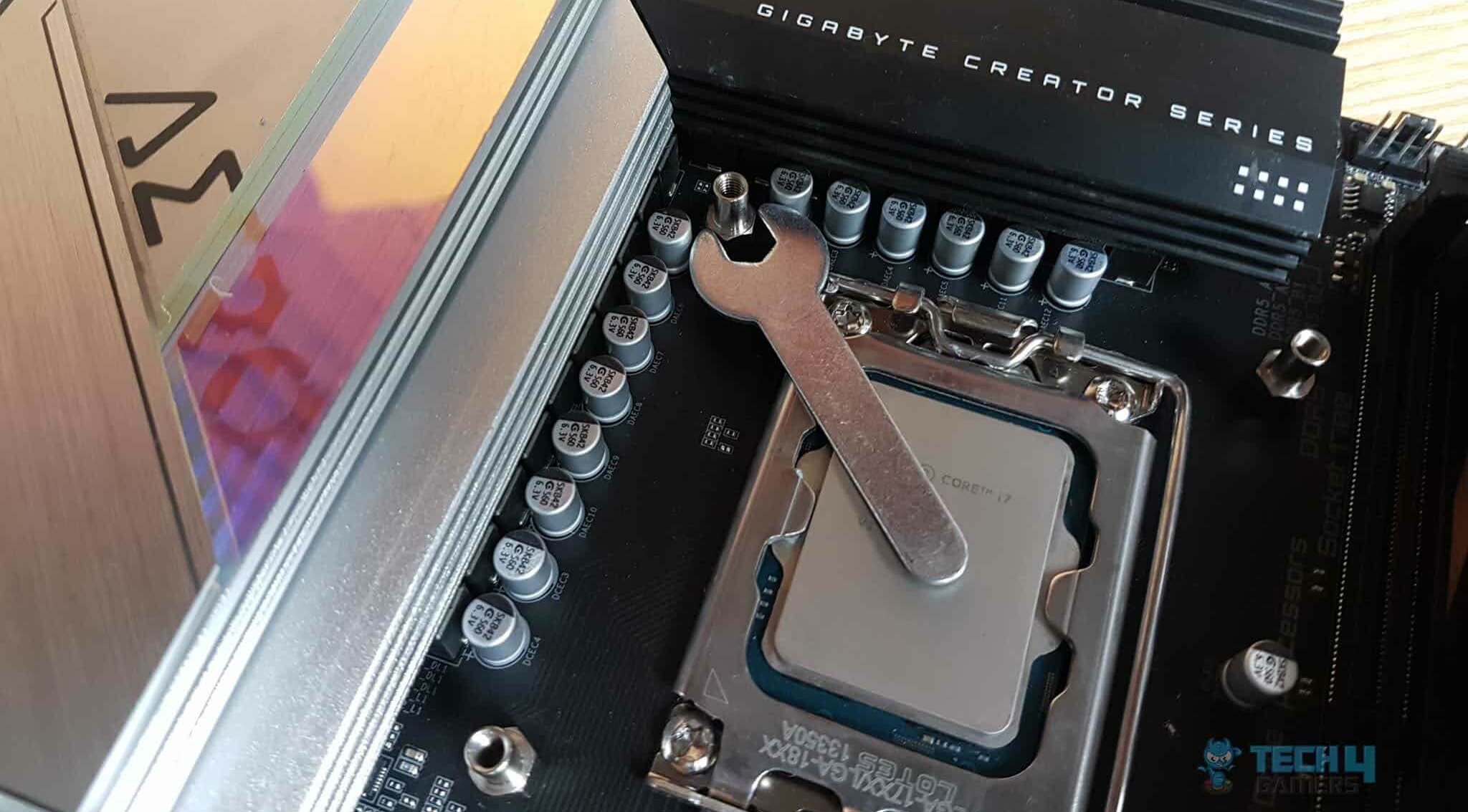
- Graphics Card: To clean the graphics card, again, use a compressed air can. Carefully make sure to blow off any dust that is covering the GPU slots and its heatsink.
- PSU: I recommend cleaning the PSU using an air compressor. Set the correct pressure and keep it at a distance of at least 2 inches. Blow the air into the holes already present on the PSU’s sides and through the fan. Ensure to keep blowing the dust off until none comes out of the PSU.
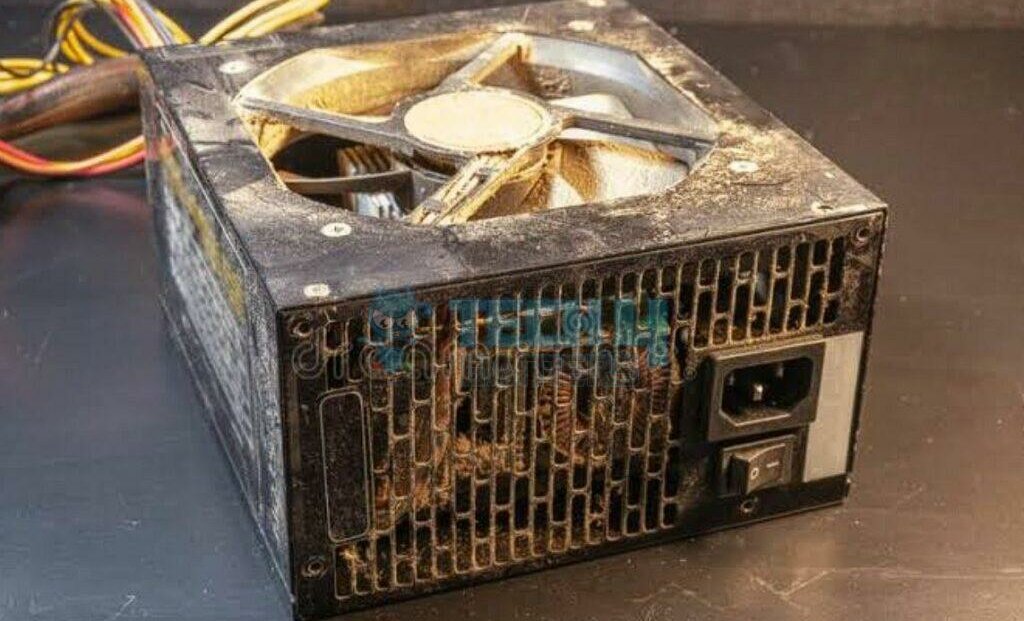
How Do I Protect My PC From Catching Dust Soon?
Here are some tips you can keep in mind so that your PC does not catch dust sooner than it should:
- Keep it out of pets’ reach, as their furs can likely block the fans from spinning if it gets between them.
- Use an air filter to prevent dust and debris from entering your computer case regularly. [5]
- Keep your PC in a closed room, preferably with an AC; this will help your PC not get covered up in dust and not heat up quickly.
- Maintain clean surroundings of your PC.
As someone who cares about their PC, I always ensure it is free of any impurities. Additionally, while cleaning the PC, I was careful not to damage any sensitive areas. If you give your PC the care it needs, only then will it be able to provide you with a good performance.
Helpful Resources By Tech4Gamers
- How Much Is My PC Worth? [Valuation Guide]
- How Much Does It Cost To Ship a PC? [2024]
- How Much Does It Cost To Build A PC: Gaming & Budget
- PC Case Airflow setup
References
-
- UNIVERSITY of WISCONSIN–MADISON. How to clean your computer & tech gear. Retrieved from https://it.wisc.edu/news/how-to-clean-your-computer/
- Academia.edu. Maintenance Of Computers. Retrieved from https://www.academia.edu/4768558/Maintenance_of_Computer
- Hunter Business School. Why Conduct Routine Maintenance On Computers? Retrieved from https://hunterbusinessschool.edu/the-importance-of-regular-maintenance-on-your-computer/
- Geeks2You. Computer Cleaning and Maintenance: Best Practices for Dust-Free Systems. Retrieved from https://geeks2you.com/computer-cleaning-and-maintenance-best-practices-for-a-dust-free-system/
- deu.edu.tr. Protecting Computer Hardware. Retrieved from http://web.deu.edu.tr/doc/oreily/networking/puis/ch12_02.htm
Frequently Asked Questions
What Is The Alternative To An Air Compressor For Cleaning A PC?You can use a microfiber cloth and even a soft toothbrush or paintbrush to clean the dust off the components of your PC.
Why Are Fans So Noisy When There Is Dust Build-Up?The reason behind fans being noisy is that they have to put in extra effort to maintain the temperature inside the computer case as it becomes too high when all the components start to overheat.
Why Is The Dust So Sticky On The PC Components?The reason why the dust is so sticky and stubborn is due to moisture and emissions from vehicles that are present in the air. It causes the components to look like they are greasy.
Thank you! Please share your positive feedback. 🔋
How could we improve this post? Please Help us. 😔
[Wiki Editor]
Ali Rashid Khan is an avid gamer, hardware enthusiast, photographer, and devoted litterateur with a period of experience spanning more than 14 years. Sporting a specialization with regards to the latest tech in flagship phones, gaming laptops, and top-of-the-line PCs, Ali is known for consistently presenting the most detailed objective perspective on all types of gaming products, ranging from the Best Motherboards, CPU Coolers, RAM kits, GPUs, and PSUs amongst numerous other peripherals. When he’s not busy writing, you’ll find Ali meddling with mechanical keyboards, indulging in vehicular racing, or professionally competing worldwide with fellow mind-sport athletes in Scrabble. Currently speaking, Ali’s about to complete his Bachelor’s in Business Administration from Bahria University Karachi Campus.
Get In Touch: alirashid@tech4gamers.com


 Threads
Threads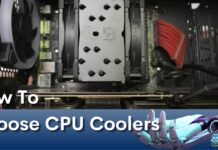
![What Is A PC Radiator? [Sizes, Mountings, Direction & Guide] PC Radiators](https://tech4gamers.com/wp-content/uploads/2023/08/HOW-TO-5-2-218x150.jpg)
![PSU Voltage Ripple [Explained] 12V Rail Transformer and MOSFETs Mounted on the Vertical Daughter Board (Image By Tech4Gamers)](https://tech4gamers.com/wp-content/uploads/2024/05/MSI-MPG-A850G-850W-12V-Rail-Transformer-and-MOSFETS-Mounted-on-the-Vertical-Daughter-Board-Image-By-Tech4Gamers-218x150.jpg)
![What Is VSync? [All Types & Benefits] What Is VSync?](https://tech4gamers.com/wp-content/uploads/2023/05/HOW-TO-10-218x150.jpg)
